Dear Zazie,
Here is today’s Lovers’ Chronicle from Mac Tag.
Rhett
The Lovers’ Chronicle
Dear Muse,
not a river runnin’ through it
“Oh I see where you’re going”
yes indeed, music pulses
through, the lifeblood, definin’
these feelin’s and emotions
“My life has certainly been
defined by musical stages”
your beautiful voice is one
of the many things
i love about you
“And I love the music
we make together”
c’mon baby, lets make some more
© copyright 2023 mac tag/cowboycoleridge all rights reserved
oh i still hear it playin’
i am not deaf, just
far removed
listen
the wind whirls through
each and every one
do you feel it on your cheek
as i do
now, becomin’ clear
you, red hair gleamin’
in the sun and flowin’
with the breeze
it is all i can do
to stand here
in wonder
what else matters
© copyright 2022 mac tag/cowboycoleridge all rights reserved
© copyright 2021 mac tag/cowboy coleridge all rights reserved
low times again
shoulda damn well
known better
will get around to bein’ grateful
for driven home the point
and usherin’ in this
what the hell difference
does it make feelin’
Schopenhauer was right
you gotta keep the bar low,
the lower the better
an odd comfort found
not givin’ a shit, knowin’
that whatever happens
it does not really matter
© copyright 2020 mac tag/cowboycoleridge all rights reserved
at a small bar out on the high plains,
where spent too much time drinkin’,
but not pretendin’ anymore,
writin’ about what it was like
to have and have not
and the song, plaintiff
though no longer trapped
by the past, and the light,
shinin’ in your hair that day,
makin’ it impossible
not to believe
this was meant for us
© copyright 2019 mac tag/cowboy coleridge all rights reserved
bade not
despite, or perhaps
due to, tryin’ so hard
the song plays on
from the first entrance
guilty of withdrawin’,
the nearer drawn
plaintive, i guess
if you must go there
what other outcomes
could have come
from such
a misguided search
the song plays on
the voice
the melody
pulls you in
go with it
it will take you
where you need to go
© copyright 2018 mac tag/cowboy coleridge all rights reserved
inside, a voice
then the sound of a guitar,
and the song of a woman
plaintive, gentle, echoin’
in the sonority
of the empty house
outside, rain
on the rain-starved country
to the very farthest end
of the vast plain,
silence reigns
but inside,
the woman’s voice
continues to sing
in a key of sadness
and the guitar accompanies
in somber notes
© copyright 2017 mac tag/cowboy Coleridge all rights reserved
 Today is the birthday of George Herbert (3 April 1593 – 1 March 1633); Welsh-born English poet, orator and Anglican priest.
Today is the birthday of George Herbert (3 April 1593 – 1 March 1633); Welsh-born English poet, orator and Anglican priest.
Love (III)
Love bade me welcome; yet my soul drew back,
Guilty of dust and sin.
But quick-ey’d Love, observing me grow slack
From my first entrance in,
Drew nearer to me, sweetly questioning,
If I lacked any thing.
Lines 1-6
| Anne Lister | |
|---|---|
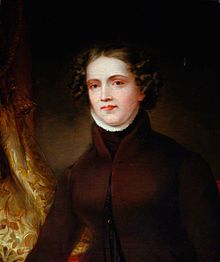
Anne Lister, c. 1830. Portrait by Joshua Horner
|
|
Today is the birthday of Anne Lister (Halifax, United Kingdom 3 April 1791 – 22 September 1840 Kutaisi, Georgia); Yorkshire landowner, diarist, mountaineer and traveller. Throughout her life she kept diaries which chronicled the details of her daily life, including her lesbian relationships, her financial concerns, her industrial activities and her work improving Shibden Hall. Her diaries contain more than 4,000,000 words and about a sixth of them—those concerning the intimate details of her romantic and sexual relationships—were written in code. The code, derived from a combination of algebra and Ancient Greek, was deciphered in the 1980s. Lister is often called “the first modern lesbian” for her clear self-knowledge and openly lesbian lifestyle. Called “Fred” by her lover and “Gentleman Jack” by Halifax residents, she suffered from harassment for her sexuality, and recognised her similarity to the Ladies of Llangollen, whom she visited.
In 1804 Lister was sent to the Manor House School in York (in the King’s Manor buildings), where she would meet her first love, Eliza Raine (1791–1869). Eliza and her sister Jane were the very rich daughters of an East India Company surgeon in Madras, brought to Yorkshire after his death. Anne and Eliza met and shared a bedroom aged 13 at boarding school, but Anne was asked to leave after two years. She rejoined the school after Eliza had left. Eliza expected to live with Anne as an adult, but Anne began affairs with Isabella Norcliffe and Mariana Belcombe, day-pupils at the school. In despair and frustration Eliza became a patient at Clifton Asylum, run by Mariana’s father Dr Belcombe. While being educated at home Lister developed an interest in classical literature. In a surviving letter to her aunt from 3 February 1803, a young Lister explains “My library is my greatest pleasure… The Grecian History had please me much.“
Her wealth allowed her some measure of freedom to live as she pleased. She inherited the family estate on her aunt’s death in 1836, Shibden Hall, but took charge of it from 1826.
Lister is described as having a “masculine appearance”; one of her lovers, Marianna Lawton (née Belcombe), was initially ashamed to be seen in public with her because her appearance was commented on. She dressed entirely in black and took part in many activities that were not perceived as the norm for gentlewomen, such as opening and owning a colliery. Lawton and Lister were lovers for several years, including a period during which Lawton was married and had her husband’s permission.
Lister’s subsequent affair with a wealthy heiress, Ann Walker, whom she met in 1832, was a story of local repute and her eventual marriage (without legal recognition) to Walker in 1834 was highly unusual. The couple lived together an Shibden Hall until Lister’s death in 1840. Walker’s fortune was used to improve Shibden Hall and the property’s waterfall and lake. Lister renovated Shibden Hall quite significantly to her own design. In 1838 she added a Gothic tower to the main house, to serve as her private library. She also had a tunnel dug under the building which allowed the staff to move about without disturbing her.
In 1830 while travelling in France, Lister was the first woman to ascend Monte Perdido in the Aragonese Pyrenees. In 1838, she came back to the Pyrenees with Walker and completed the first “official” ascent of the Vignemale (3,298 metres (10,820 ft)). In France she was known as Ann Lister or Lady Lister only for this accomplishment.
Anne Lister died on 22 September 1840 aged 49 of a fever at Koutais (now Kutaisi, Georgia) while travelling with Ann Walker. Walker, to whom ownership of Shibden Hall passed, had Lister’s body embalmed and brought back to the UK, where she is buried in the parish church in Halifax, West Yorkshire. Ann Walker died in 1854 at her childhood home, Cliff Hill in Lightcliffe.
| Mistinguett | |
|---|---|

Mistinguett by Paul Nadar (son of Nadar)
|
|

Today is the birthday of Mistinguett (Jeanne Florentine Bourgeois; Enghien-les-Bains, Île-de-France, France; 3 April 1875 – 5 January 1956 Bougival, Île-de-France, France); actress and singer. She was at one time the highest-paid female entertainer in the world.
Bourgeois made her debut as Mistinguett at the Casino de Paris in 1895 and went on to appear in venues such as the Folies Bergère, Moulin Rouge and Eldorado. Her risqué routines captivated Paris, and she went on to become the most popular French entertainer of her time and the highest-paid female entertainer in the world, known for her flamboyance and a zest for the theatrical. In 1919 her legs were insured for 500,000 francs.
Mistinguett never married. She also had a long relationship with Maurice Chevalier, 13 years her junior.
She first recorded her signature song, “Mon Homme”, in 1916. It was popularised under its English title “My Man” by Fanny Brice and has become a standard in the repertoire of numerous pop and jazz singers.
During a tour of the United States, Mistinguett was asked by Time magazine to explain her popularity. Her answer was, “It is a kind of magnetism. I say ‘Come closer’ and draw them to me.”
Mistinguett died in Bougival, France, at the age of 80, attended by her son, a doctor. She is buried in the Cimetière Enghien-les-Bains, Île-de-France, France.
Upon her death, writer Jean Cocteau observed in an obituary, “Her voice, slightly off-key, was that of the Parisian street hawkers—the husky, trailing voice of the Paris people. She was of the animal race that owes nothing to intellectualism. She incarnated herself. She flattered a French patriotism that was not shameful. It is normal now that she should crumble, like the other caryatids of that great and marvelous epoch that was ours”.
Gallery
-

Mistinguett poster, 1911
-

Mistinguett in the United States in 1924
-

Poster Mistinguett Moulin Rouge, by Charles Gesmar, 1926
-

Mistinguett and Josephine Baker in 1927
-

Mistinguett in her Chrysler, Deauville, France, 1929
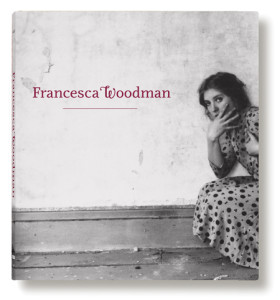
Today is the birthday of Francesca Woodman (Francesca Stern Woodman; Boulder, Colorado April 3, 1958 – January 19, 1981 New York City); photographer best known for her black and white pictures featuring either herself or female models.
Beginning in 1975, Woodman attended the Rhode Island School of Design (RISD) in Providence, Rhode Island. She studied in Rome between 1977 and 1978 in a RISD honors program. Because she spoke fluent Italian, she was able to befriend Italian intellectuals and artists. She returned to Rhode Island in late 1978 to graduate from RISD.
Woodman moved to New York City in 1979. After spending the summer of 1979 in Stanwood, Washington whilst visiting her boyfriend at Pilchuck Glass School, she returned to New York. In the summer of 1980, she was an artist-in-residence at the MacDowell Colony in Peterborough, New Hampshire.
In late 1980, Woodman became depressed due to the failure of her work to attract attention and to a broken relationship. She survived a suicide attempt in the autumn of 1980, after which she lived with her parents in Manhattan.
On January 19, 1981, Woodman died by jumping out of a loft window of a building on the East Side of New York. An acquaintance wrote, “things had been bad, there had been therapy, things had gotten better, guard had been let down”. Her father has suggested that Woodman’s suicide was related to an unsuccessful application for funding from the National Endowment for the Arts.
Gallery
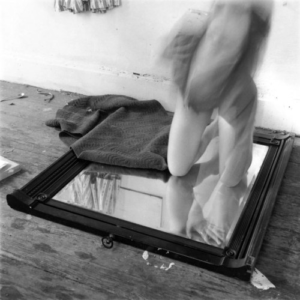
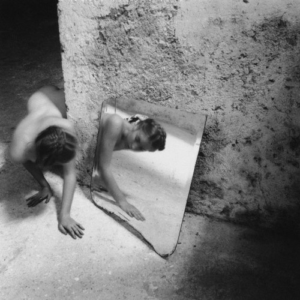
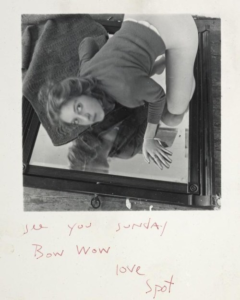
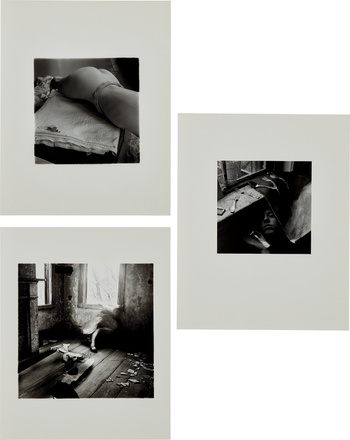
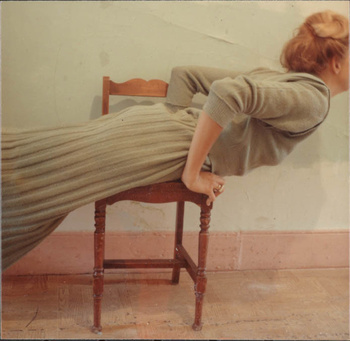
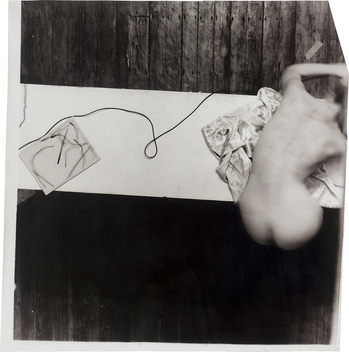
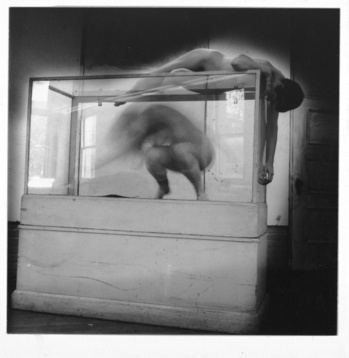
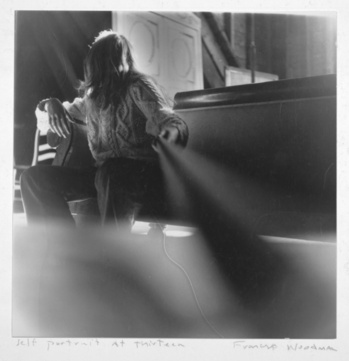
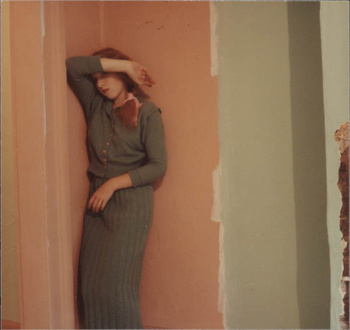
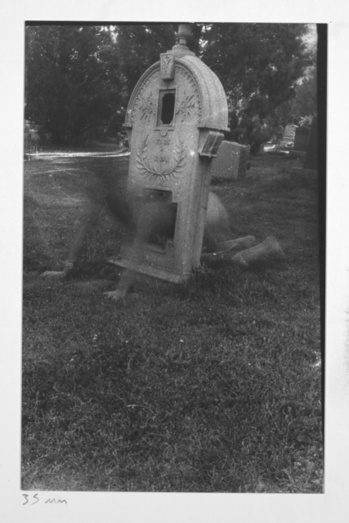
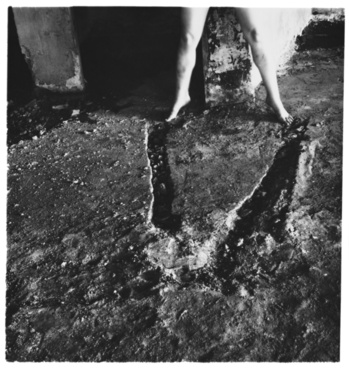
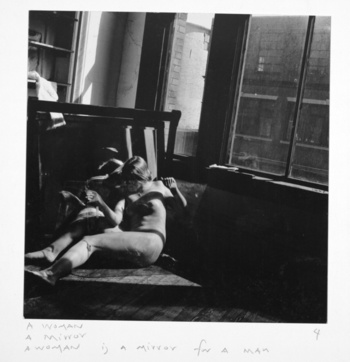
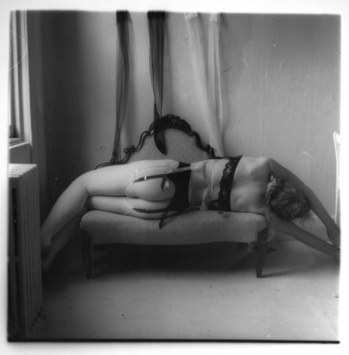
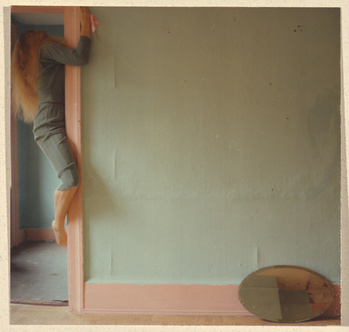
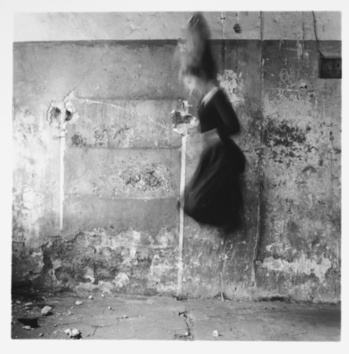
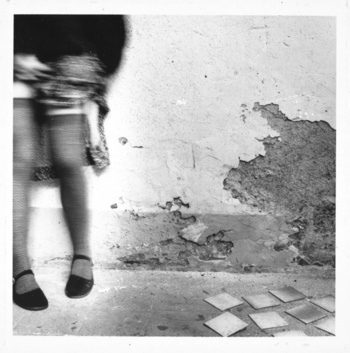
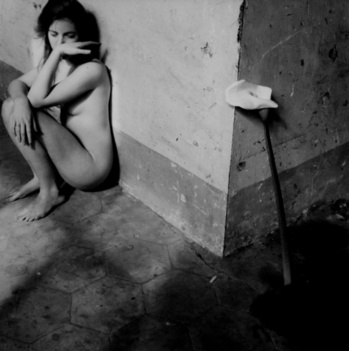
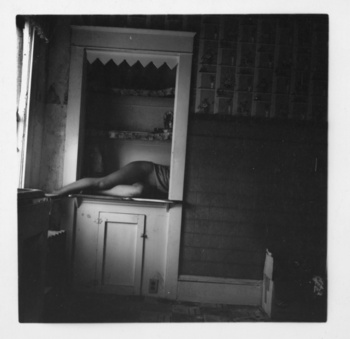
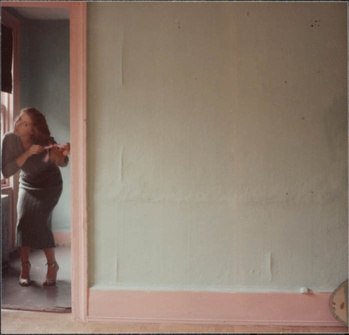


No Comments on "The Lovers’ Chronicle 3 April – plains’s song – verse by George Herbert – birth of Anne Lister & Mistinguett – photography by Francesca Woodman"